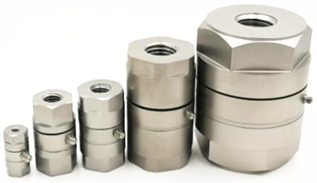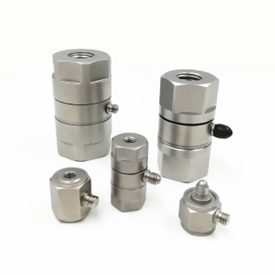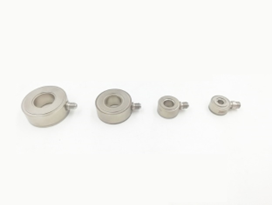 Force Sensor
Force Sensor
 Load Cell
Load Cell
 Torque Force Sensor
Torque Force Sensor
 Multi-axis Force Sensor
Multi-axis Force Sensor
 Piezoelectric Force Sensor
Piezoelectric Force Sensor
What Is A Piezoelectric Sensor?
Piezoelectric sensors are a device that uses the piezoelectric effect to measure the electrical potential caused by applying mechanical force to a piezoelectric material. They are based on the principle of electromechanical energy conversion and primarily measure force, as well as other quantities such as pressure, acceleration, temperature, and strain by converting the acquired data to an electrical charge.
Flex motions, touch, vibrations, and shock measurement all use piezoelectric sensors. They are used in sectors such as healthcare, aerospace, consumer electronics, and nuclear instrumentation. They are important as vibration and shock shorten the life of electronic and electromechanical systems so delicate leads and bond wires tend to be stressed. Due to impact and impulse shock, an intermittent failure may occur as a result of system failure.

Piezoelectric sensors work on the principle of the piezoelectric effect. Piezoelectric originates from the Greek word piezein, which literally means to squeeze or press. As the latter suggests, we are squeezing quartz crystals to make an electric voltage. Hence, piezoelectric sensors work by applying mechanical energy to a crystal in the following steps:
It is important to understand the behavior of the piezoelectric crystals when determining the piezoelectric effect. Piezoelectric Sensors based on the piezoelectric effect can operate from transverse, longitudinal, or shear forces, and are insensitive to electric fields and electromagnetic radiation. The response is also very linear over wide temperature ranges, making it an ideal sensor for rugged environments.

Benefits of Piezoelectric Sensors
The benefits of these sensors are great and include:
We offer wireless piezoelectric sensors. This helps you assess the impact of potential breakdowns, machinery faults and anticipate large-scale issues. Which will bring more efficiency into your business.
